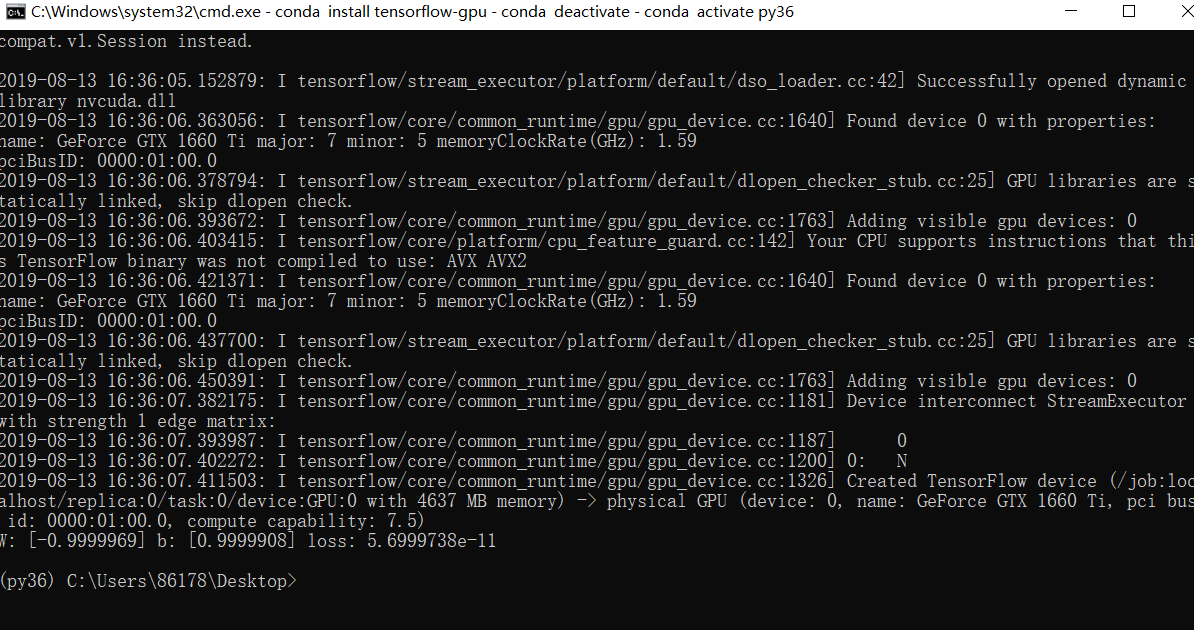Tensorflow是什么
English version
Chinese version
附带一个本次机器学习的例子
tf.train API
一个简单的线性回归
import numpy as np
import tensorflow as tf
#Model parameters
W = tf.Variable([.3], dtype=tf.float32)
b = tf.Variable([-.3], dtype=tf.float32)
#Model input and output
x = tf.placeholder(tf.float32)
linear_model = W * x + b
y = tf.placeholder(tf.float32)
#loss
loss = tf.reduce_sum(tf.square(linear_model - y)) # sum of the squares
#optimizer,定义一个优化器,使用梯度下降优化方法
optimizer = tf.train.GradientDescentOptimizer(0.01)
#优化器最小化loss
train = optimizer.minimize(loss)
#training data
x_train = [1,2,3,4]
y_train = [0,-1,-2,-3]
#training loop
init = tf.global_variables_initializer()
sess = tf.Session()
sess.run(init) # reset values to wrong
#迭代一千次后,参数已经训练好
for i in range(1000):
sess.run(train, {x:x_train, y:y_train})
#送入训练好的参数,求出loss
#evaluate training accuracy
curr_W, curr_b, curr_loss = sess.run([W, b, loss], {x:x_train, y:y_train})
print("W: %s b: %s loss: %s"%(curr_W, curr_b, curr_loss))